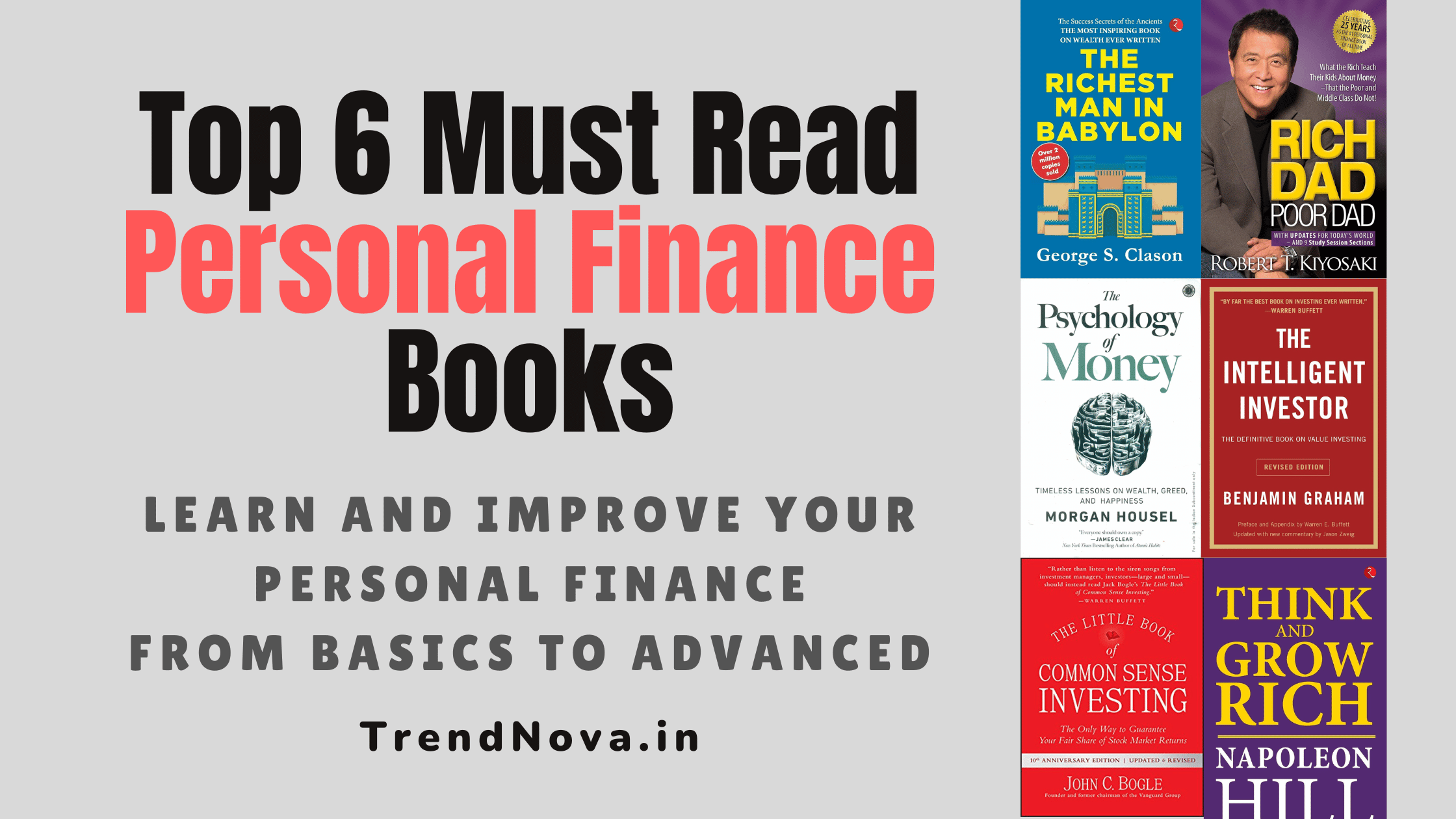If you’re serious about taking control of your finances and building wealth, one of the best ways to get started is by reading the right personal finance books. The world of finance can be intimidating, but with the right knowledge, anyone can master it. Here’s our list of the top 6 trending personal finance books that are essential reads for anyone looking to improve their financial situation.
1. “Rich Dad Poor Dad” by Robert T. Kiyosaki
Why You Should Read It:
One of the most popular personal finance books ever written, “Rich Dad Poor Dad” is a timeless classic that challenges traditional views on money. Robert Kiyosaki shares the financial lessons he learned from his two “dads” – his real father (poor dad) and his best friend’s father (rich dad). The book focuses on the importance of financial education, smart investing, and making your money work for you.
Key Takeaways:
- The difference between assets and liabilities.
- Why it’s important to have your money work for you instead of just working for money.
- The significance of financial literacy in building wealth.
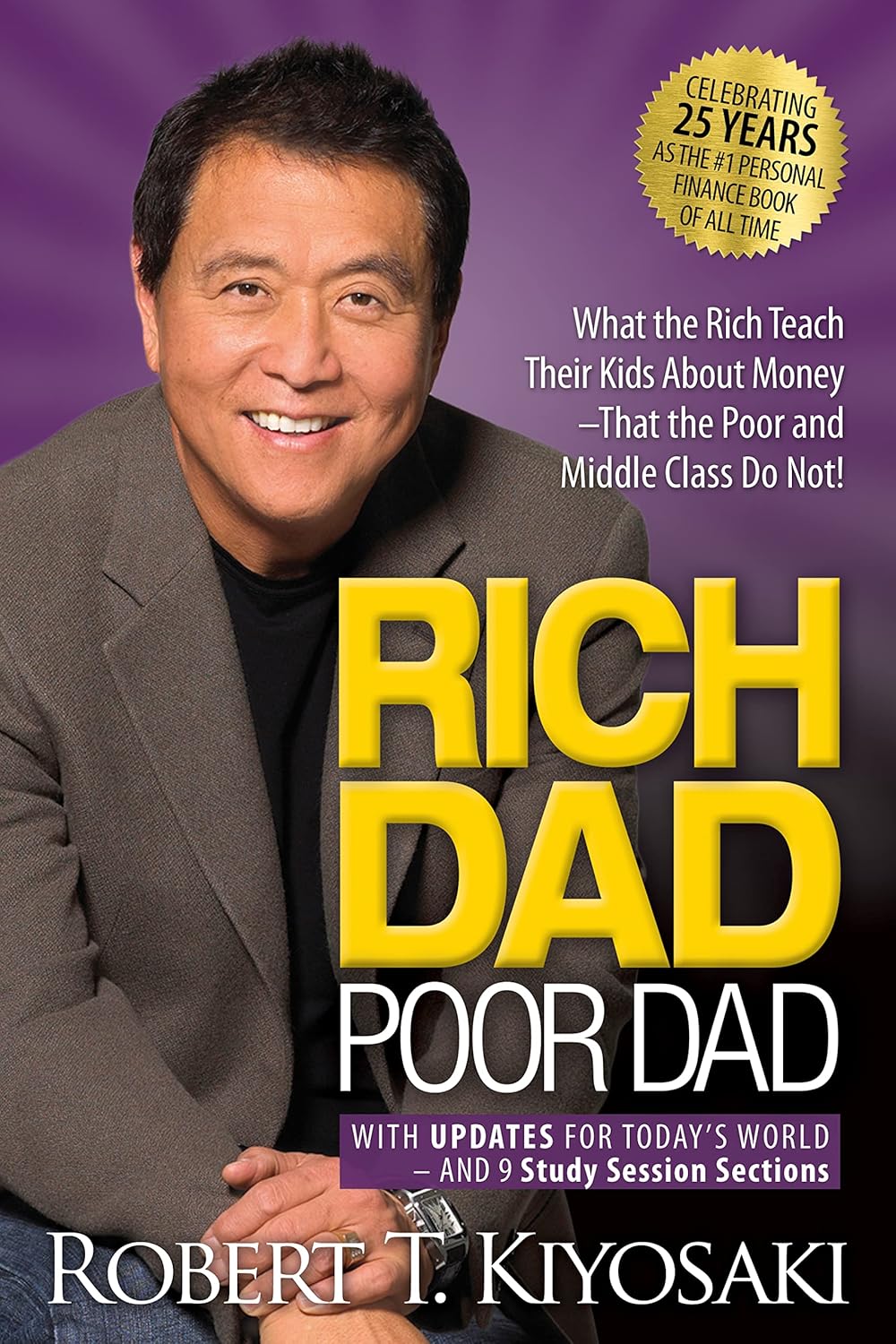
>The difference between assets and liabilities.
>Why it’s important to have your money work for you instead of just working for money.
>The significance of financial literacy in building wealth.
This personal finance book is an excellent starting point for anyone who wants to shift their mindset about money and start investing wisely.
2. “The Richest Man in Babylon” by George S. Clason
Why You Should Read It:
“The Richest Man in Babylon” offers timeless lessons on wealth building, set in the ancient city of Babylon. George S. Clason presents financial wisdom through a series of parables, making this book an easy and engaging read. It emphasizes the basics of personal finance such as saving, investing, and managing debt.
Key Takeaways:
- The importance of saving at least 10% of your income.
- Investing wisely to grow your wealth over time.
- Avoiding debt and making smart financial choices.
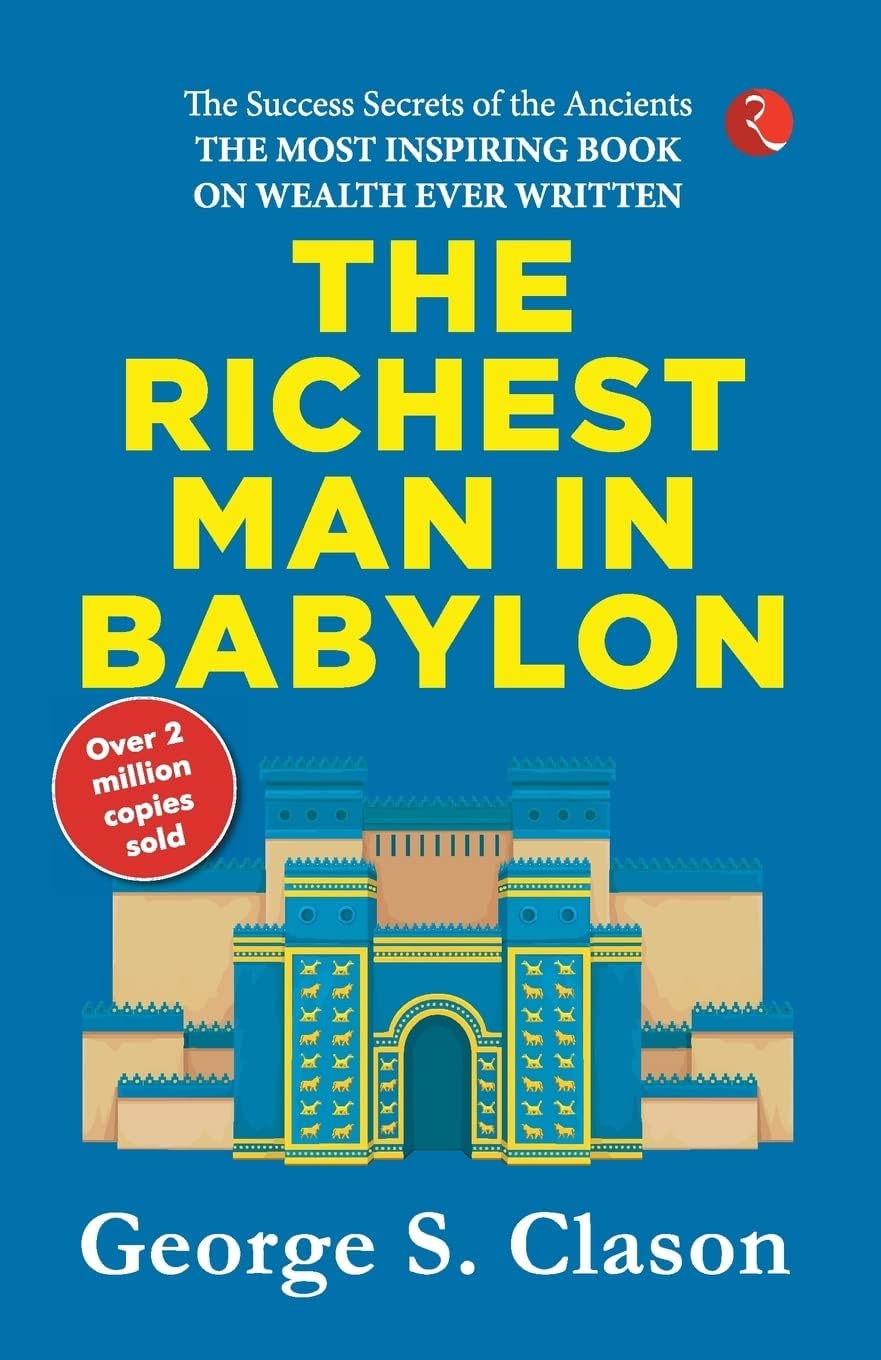
The Richest Man in Babylon” offers timeless lessons on wealth building, set in the ancient city of Babylon. George S. Clason presents financial wisdom through a series of parables, making this book an easy and engaging read. It emphasizes the basics of personal finance such as saving, investing, and managing debt.
This personal finance book is perfect for those who want practical, easy-to-understand advice on building wealth.
3. “The Intelligent Investor” by Benjamin Graham
Why You Should Read It:
Considered the bible of investing, “The Intelligent Investor” was written by Benjamin Graham, a mentor to Warren Buffett. This book dives deep into the principles of value investing and offers timeless wisdom on how to approach the stock market with a rational and disciplined mindset. It’s a must-read for anyone serious about investing.
Key Takeaways:
- The importance of value investing and understanding the true worth of stocks.
- How to protect yourself from significant losses in the stock market.
- The significance of having a long-term investment strategy.
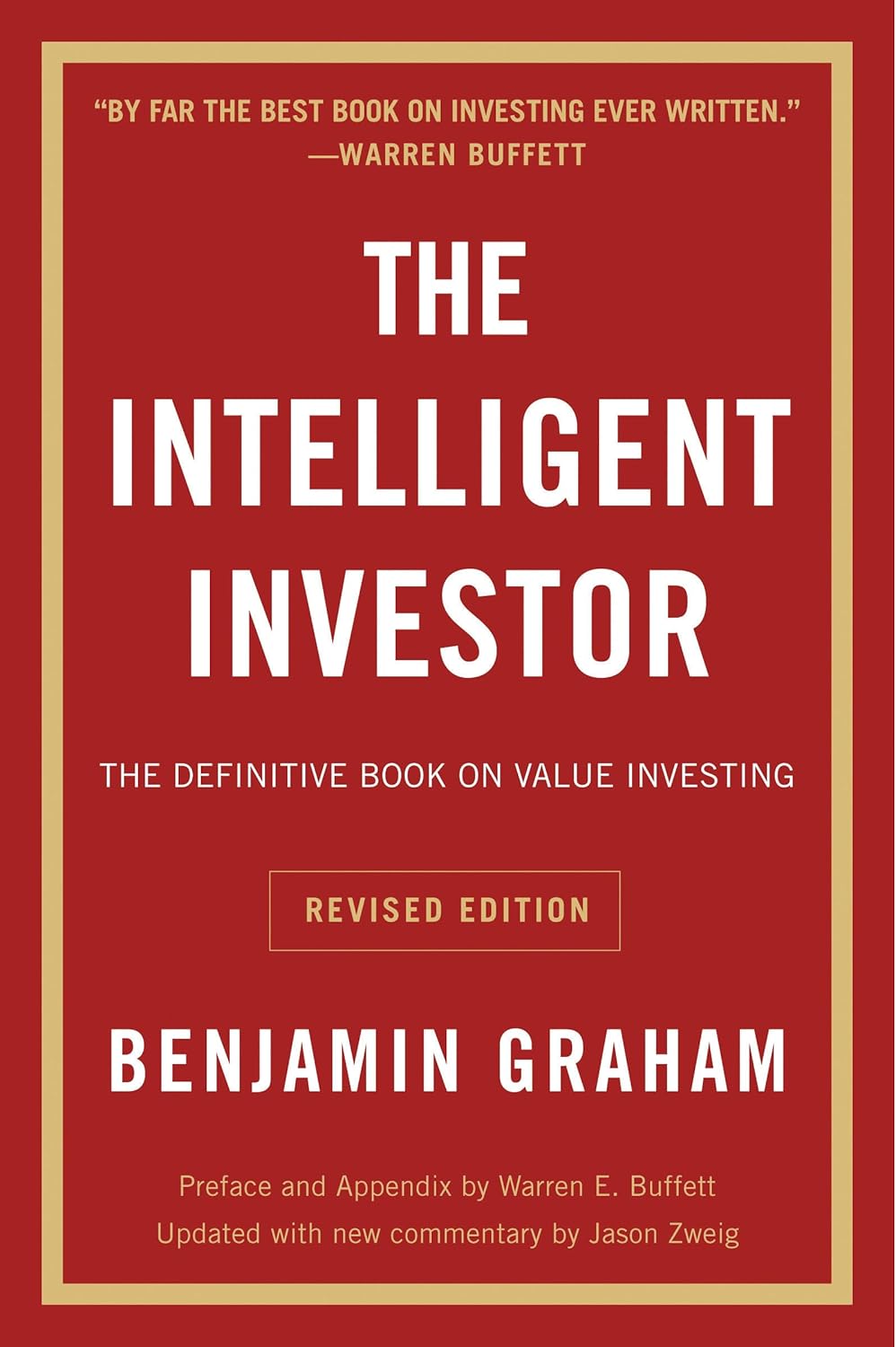
Considered the bible of investing, “The Intelligent Investor” was written by Benjamin Graham, a mentor to Warren Buffett. This book dives deep into the principles of value investing and offers timeless wisdom on how to approach the stock market with a rational and disciplined mindset. It’s a must-read for anyone serious about investing.
This is a personal finance book that is ideal for those who want to understand the fundamentals of investing and learn how to make smart, informed financial decisions.
4. “The Psychology of Money” by Morgan Housel
Why You Should Read It:
“The Psychology of Money” offers a fresh take on personal finance by focusing on the psychological aspects of financial decision-making. Morgan Housel explores how emotions, biases, and personal experiences influence our financial behaviors, often more than logic and numbers.
Key Takeaways:
- The role of luck and risk in financial success.
- Why managing your money well is more important than just making money.
- Understanding the emotional side of investing and financial planning.
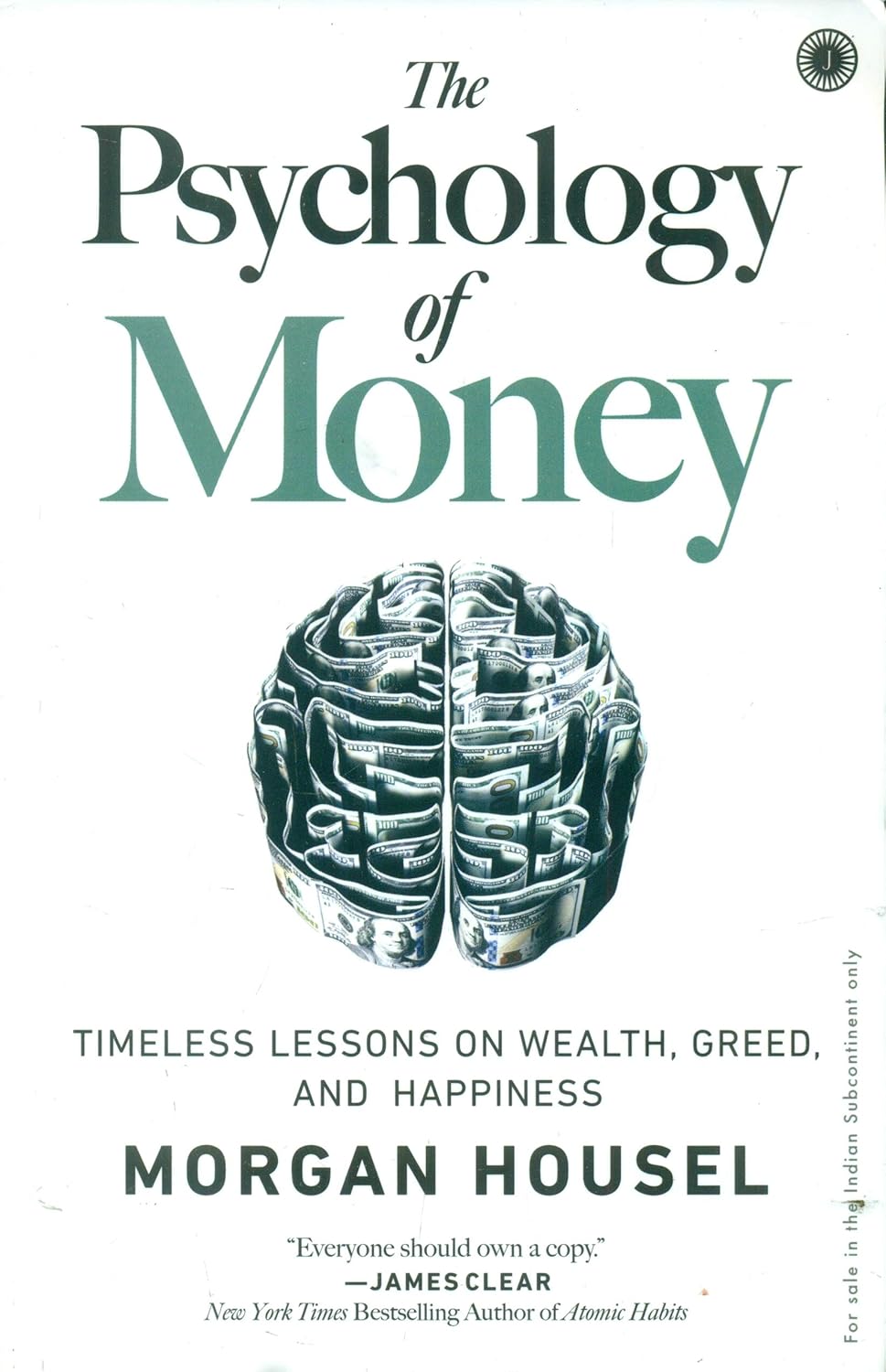
“The Psychology of Money” offers a fresh take on personal finance by focusing on the psychological aspects of financial decision-making. Morgan Housel explores how emotions, biases, and personal experiences influence our financial behaviors, often more than logic and numbers.
This personal finance book is a great read for anyone looking to understand the emotional factors that affect their financial decisions.
5. “Think and Grow Rich” by Napoleon Hill
Why You Should Read It:
Written in 1937, “Think and Grow Rich” is one of the most influential personal finance books of all time. Napoleon Hill studied the habits of wealthy individuals and compiled his findings into 13 principles for success. This book goes beyond simple financial advice and focuses on the mindset and habits required to achieve wealth.
Key Takeaways:
- The power of a clear vision and strong desire in achieving financial success.
- How to harness the power of positive thinking and persistence.
- The importance of creating a plan and taking action towards your financial goals.
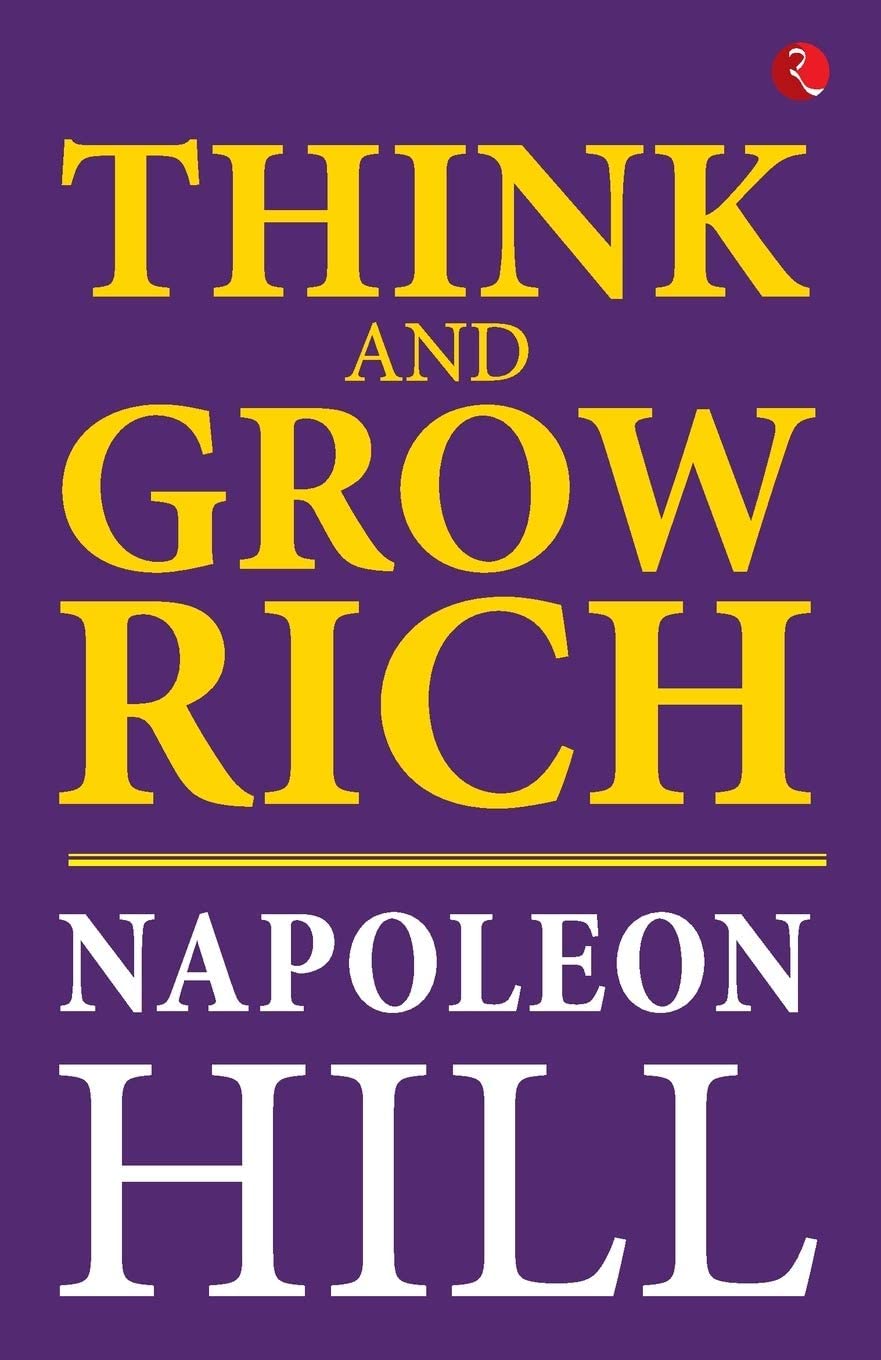
Written in 1937, “Think and Grow Rich” is one of the most influential personal finance books of all time. Napoleon Hill studied the habits of wealthy individuals and compiled his findings into 13 principles for success. This book goes beyond simple financial advice and focuses on the mindset and habits required to achieve wealth.
If you’re interested in personal development as much as personal finance, this book is a must-read.
6. “The Little Book of Common Sense Investing” by John C. Bogle
Why You Should Read It:
John C. Bogle, the founder of Vanguard Group, offers straightforward advice on investing in “The Little Book of Common Sense Investing.” This book is a great introduction to the concept of index investing, which focuses on low-cost, passive strategies to grow your wealth over time.
Key Takeaways:
- The advantages of investing in low-cost index funds.
- Why trying to beat the market is often a losing game.
- The importance of keeping investment costs low to maximize returns.
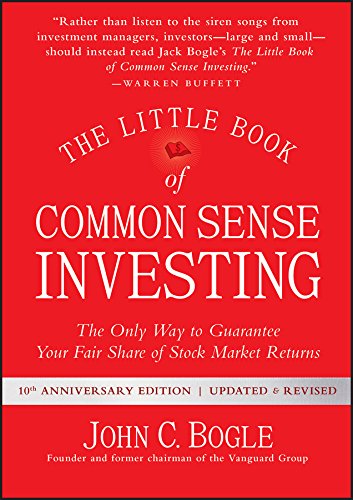
John C. Bogle, the founder of Vanguard Group, offers straightforward advice on investing in “The Little Book of Common Sense Investing.” This book is a great introduction to the concept of index investing, which focuses on low-cost, passive strategies to grow your wealth over time.
For those new to investing or looking to adopt a simple, effective strategy, this personal finance book is a must-read.
Why You Should Read These Personal Finance Books
These top personal finance books cover everything from investing basics and the psychology of money to actionable strategies for building wealth. They offer timeless wisdom and practical tips that can help anyone, regardless of their financial situation, to make better decisions about their money. Whether you’re just starting out or looking to enhance your existing financial knowledge, these books provide the tools and insights you need to take charge of your financial future.
Final Thoughts
Personal finance is a journey, not a destination. The more you educate yourself, the better prepared you’ll be to handle financial challenges and make smart decisions. So, pick one of these personal finance books, start reading, and take the first step towards mastering your money.

